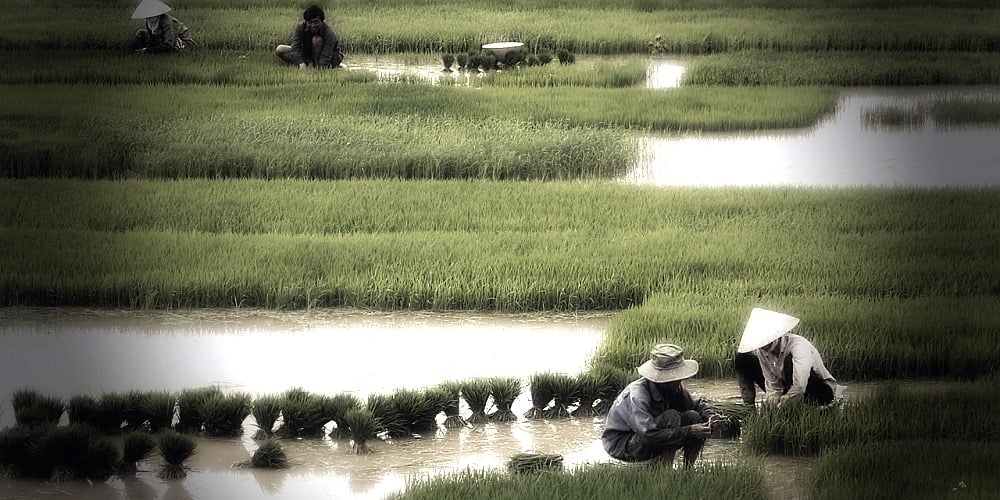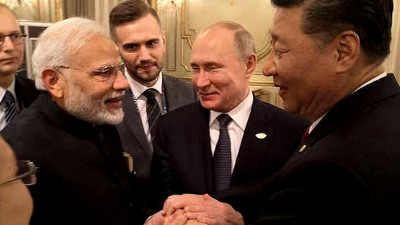Our world is facing a food crisis under the dual onslaught from El Niño and fertilizer shortage, and the situation will only worsen if Russia opts out of the Black Sea Grain Initiative.
Since the Russia-Ukraine war broke out last February, for more than 500 days the world has never seen any hint of respite.
At the start of the war, the West slapped economic sanction on Russia which has since backfired globally, sparking widespread inflation and disruption to critical supply chains.
The subsequent rate hikes by the Fed and other countries have triggered spiraling inflation the world over, impacting many developing third world countries.
Both Russia and Ukraine are major food producers, and are major suppliers of wheat, barley, corn and sunflower seed oil, catering to the need of almost a third of the planet’s population.
As for animal feed, the two warring states are also major exporters, while Russia remains the world’s predominant supplier of fertilizers a lack of which could send agricultural crop plummeting.
A chain of reactions is poised to trigger an imminent starvation of global proportions, but why no other countries can take the place of Russia in the supply of these essential items?
On humanitarian grounds, even in the midst of the war, the world must ensure global food security.
Last July, thanks to the mediation by the UN and Turkey, Russia agreed to sign the Black Sea Grain Initiative and undertook not to militarily attack grain-transporting ships at Ukrainian ports.
Time flies, the Initiative expired this Monday (July 17), with Russia officially declaring that it would terminate the Black Sea Grain Initiative, meaning they no longer guarantee that they will not attack grain-transporting ships at Ukraine’s ports.
We have no way to speculate whether Russia will evntually sign the Initiative again, but we believe it will set its new terms.
Russia’s move could have major implications on the world’s food security, and could spark widespread starvation in many underdeveloped countries.

UN secretary-general António Guterres has said the Russian move could send hundreds of millions of people into starvation while spiking the cost of living worldwide.
Ukrainian president Volodymyr Zelenskyy said he had a discussion with the UN sec-gen on Monday to re-initiate the Black Sea Grain Initiative, while Turkish president Recep Tayyip Erdogan hopes to continue negotiating with Russia when he meets Putin next month.
Meanwhile, US secretary of state Antony Blinken accused Russia of weaponizing food supply, while most of the countries urged Moscow to reinstate the Initiative in Monday’s UNSC meeting.
Agriculture and climate experts warned last May that the El Niño phenomenon would gravely affect food production, but fortunately the actual situation was not as bad as predicted.
Many areas around the world have recorded historical high temperatures this summer, signaling an early arrival of El Niño.
The significantly lower rainfall will deal a severe blow on rice production, and Asia has the biggest demand for rice in the whole world.
The International Food Policy Research Institute (IFPRI) has warned that the price of rice has shot up by 16% because of short supply.
As a matter of fact, the global rice stock has been running low since last year, complicated by severe floods in some major producing countries such as Pakistan.
In the meantime, India is imposing an export ban due to poor output as a result of severe heatwave, while Thailand is also suffering poor yield due to unpredictable weather changes.
Fertilizer shortage is another major factor for poor rice output. Indonesian president Joko Widodo said the world is facing a food crisis under the dual onslaught from El Niño and fertilizer shortage, and the situation will only get worse if Russia opts out of the Black Sea Grain Initiative.
What can Malaysia do in the face of the threat? Prime Minister Datuk Seri Anwar Ibrahim pledged in Alor Setar last Saturday that the government would provide RM3 billion to help boost rice yield and increase the farmers’ incomes.
The government has planned to open up 30,000 hectares of land held by Muda Agricultural Development Authority (MADA) for rice cultivation, with the anticipated participation of almost 15,000 rice farmers.
We admit that upgrading the existing irrigation system is a prerequisite to boost rice production, but for better output and quality, the determining factors are soil improvement and the selection of rice varieties.
Actually the state of Kedah is never short of suitable land for rice cultivation, but because of the poor output, much of the land has been laid to waste.
Compared to countries like China, Taiwan and Thailand, our yield and quality are relatively inferior.
As such, the government must strive to improve both the yield and product quality to ensure food security.
ADVERTISEMENT
ADVERTISEMENT








































